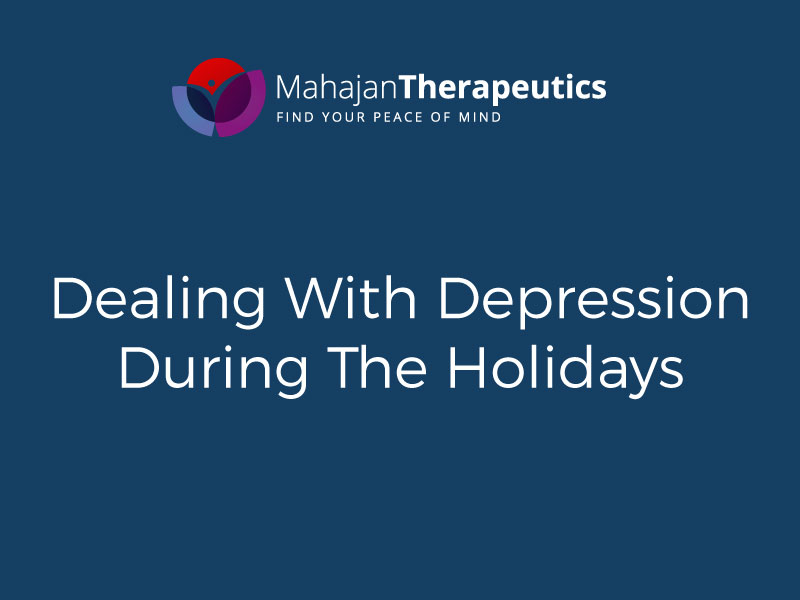The holiday season often brings unwelcome guests; depression and anxiety. While holiday depression is not an official clinical diagnosis, the holiday season is full of potential depression triggers; increased stress, navigating family dynamics, and exhaustion due to a packed schedule of holiday activities and commitments. Also, the holidays often present additional demands such as cooking, shopping, baking, and cleaning. And if COVID-19 is spreading in your community, you may be feeling added stress, and worrying about yourself and loved ones’ health. Here are some ways to reduce stress (depression and anxiety) and stay safe.
- Remember to focus on the purpose of the season. Families are stressful, by nature, but it is likely that you will only see all of these people in one area once or twice a year. Remember to enjoy your loved ones and take breaks from them when needed.
- Normalize your feeling. If you feel sad because you cannot visit a relative, be realistic that it is sad…validate yourself. It is also normal to be lonelier during this time of year. So, it is important to reach out to others; friends or relatives. Sadness and loneliness are a bad combination for someone who is prone to depression and anxiety. It is important to be vigilant.
- Keep yourself busy. You can do this by volunteering at a community center, church, or food pantry.
- Remember…nothing this year has been normal. So, please do not have unrealistic expectations of the holiday season because COVID19 will likely interrupt these times.
- It is also important to understand that even if you had perfect holiday events in the past, families grow and traditions change. So, be open to making new traditions and not be rigid about past experiences.
- Be realistic about your budget as to not overextend yourself financially. It is no fun starting out the New Year in debt if you can avoid it.
- Remember to use some calming strategies when the time comes.
- Start each day out with a positive affirmation.
- Mindfulness is about being in the present and it utilizes your senses, so it can be used, literally, anywhere.
- Deep breathing can be used if you feel yourself becoming anxious.
- Visualization is a great way to take a breather and re-focus yourself.
- Worry stones are great to have on your person at all times as they are called the “pocket tranquilizer” and uses reflexology from a pressure point on your thumb.
- Remember…wear mask, wash hands often, carry hand sanitizer and social distance when you can.
- Do not forget to get plenty of rest.
Are you experiencing symptoms of depression like the persistent feeling of sadness or loss of interest, changes in sleep, appetite, energy level, concentration, daily behavior, or self-esteem? Call us. We can help!





Recent Comments